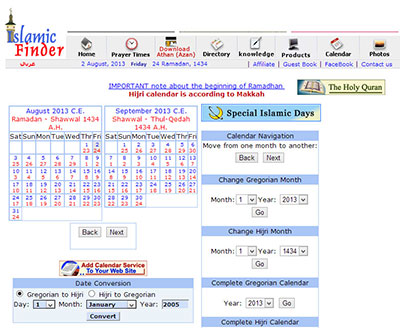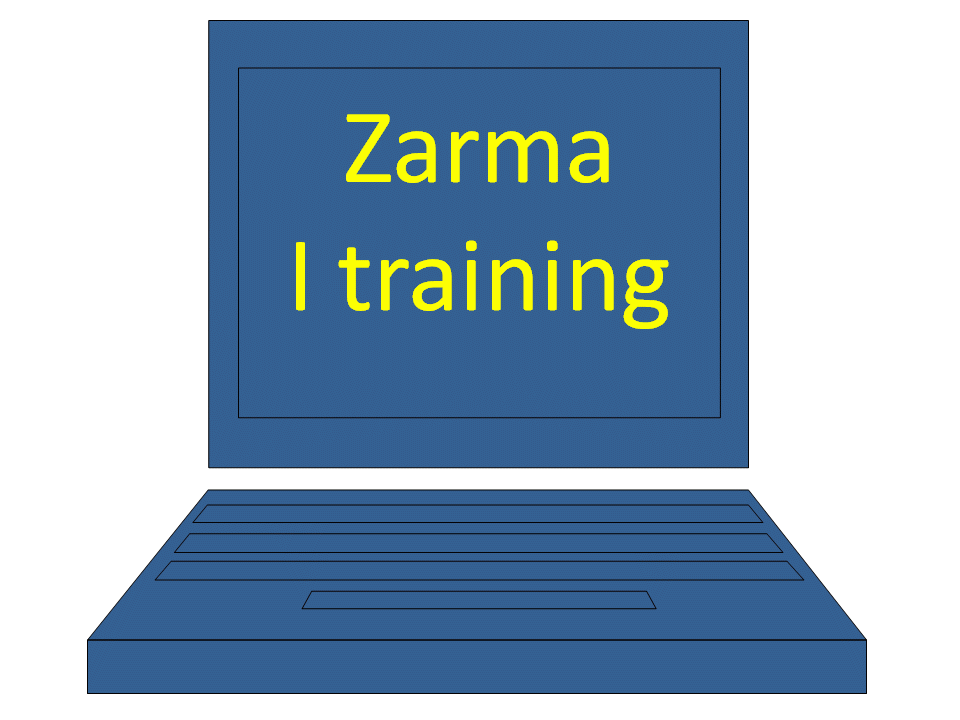Months, seasons, year |
A year (jiiri) has four seasons (waati taaci) that differ from the seasons in western Europe. A year has twelve month (handu way nda hinka), but there is a traditonal Islamic calender. However, also the Roman calender is used.
|
|
| |
Months |
The traditional Zarma names of the months (handu yaŋ) are linked to the Islamic lunar calendar. However many Zarma don't know the names of the month of this calendar, especially the first six. Everyone knows the fast month (me haw), and the month of the sacrifice (cimsi), but probably not one in ten could recite to you the whole twelve. Most how now are older people (dottijey).
A lunar month begins with the first day the new moon is visible. This is not at what we call 'new moon'. |
| |
Lunar and Islamic calendar
| Lunar / Islamic |
Zarma |
Literal translation |
Alternative |
| 1st / 5th |
dadabu beeri |
big grope around |
dadab beri |
| 2nd / 6th |
dadabu kayna |
small grope around |
dadab kayna |
| 3rd / 7th |
gaani |
dance |
gani |
| 4th / 8th |
gaani banda |
after dance |
gani banda |
| 5th / 9th |
bine kuna |
inside the heart |
binkuna |
| 6th / 10th |
bambana |
- |
|
| 7th / 11th |
way zeeno me haw |
old woman mouth tie up |
way zeno |
| 8th / 12th |
ce konno |
warm foot |
ce wasso (D) |
| 9th / 1st |
me haw |
mouth tie up |
|
| 10th / 2nd |
me feri |
mouth untie |
|
| 11th / 3rd |
fulanzam |
to rest |
|
| 12th / 4th |
cimsi |
not truth (Tabaski) |
cibsi |
|
| |
| |
|
Roman calender |
| In daily life often the Roman calendar is used as well. The names are derived from the French pronunciation of the names of the months. |
| |
Roman calendar
| number |
Zarma* |
French |
English |
| 1 |
janeru |
janvier |
January |
| 2 |
faberu |
févier |
February |
| 3 |
marsu |
mars |
March |
| 4 |
afrillu |
avril |
April |
| 5 |
mayu |
mai |
May |
| 6 |
yuni |
juin |
June |
| 7 |
yuli |
juillet |
July |
| 8 |
agusta |
août |
August |
| 9 |
satumba |
septembre |
September |
| 10 |
oktoba |
octobre |
October |
| 11 |
nuwamba |
novembre |
November |
| 12 |
disamba |
décembre |
December |
* information provided by Hadji Somaco Pastor (Antwerp, Belgium)
|
| |
|
Expressions with month |
| There are several ways in Zarma to express last month, next month, et cetera. |
| Zarma |
English |
| handu |
month (also: moon) |
| handu wo |
this month |
| handu kan bu |
last month |
| handu teeji |
next month; next moon |
| handu beene |
month after next |
|
| |
| |
|
Seasons |
| The seasons (waati yaŋ) in land locked semi arid Niger are determined by occurrence or absence of rain and the temperature. There are no fixed dates for the beginning or the end of a season. Seasons are unequal of length among themselves, and their individual length may vary from one year to another. For example, the rainy season may start as early as April or as late as July, depending on when the rains actually start. |
| |
| Zarma |
Type of season |
Normal period |
Activities |
| hayni, hayno |
hot and dry |
March - May |
preparation of fields |
| kaydiya |
warm and rainy |
June - September |
farming season |
| hemar, hemaro |
warm and dry |
October |
harvest season |
jaw, jawo
(hargu, hargo) |
cold and dry |
November - February |
non-farming activities |
|
Information about the climate in western Niger in cities along the river
Gaya (west, south)
Niamey (west, central)
Tillabéri (west, north) |
| |
|
Year |
The Zarma society is mainly a Islamic calendar. Therefore the months (handu yaŋ) are linked to the lunar Islamic calendar. A year (jiiri) is about 10 days (zaari way or jirbi way) shorter using the Islamic lunar calendar than when using the solar calendar. And so the various feast days shift backwards that many days each year.
There are several words in Zarma to express last year, next year, et cetera. |
| |
| Zarma |
English |
| jiiri |
year (for counting years) |
| yeesi |
next year |
| yeesi fo |
year after next |
| jiiri wo, haraŋ |
this year |
| mannaŋ |
last year |
| mannaŋ fo |
another last year, usually two years |
| mannaŋ fo wongo |
3 years ago |
| mannaŋ fo a jiiri iddu haraŋ |
a previous year, it 's 6 years ago this year |
| Kaa Yeesi ! |
May next year come ! |
| Irikoy m´iri cabe yeesi ! |
May God show us next year ! |
| Irikoy m´iri cabe yeesi nda baani ! |
May God show us next year in health ! |
| Irikoy m´iri cabe yeesi mansaŋcine ! |
May God show us next year as of now ! |
|
| |
|
| |







